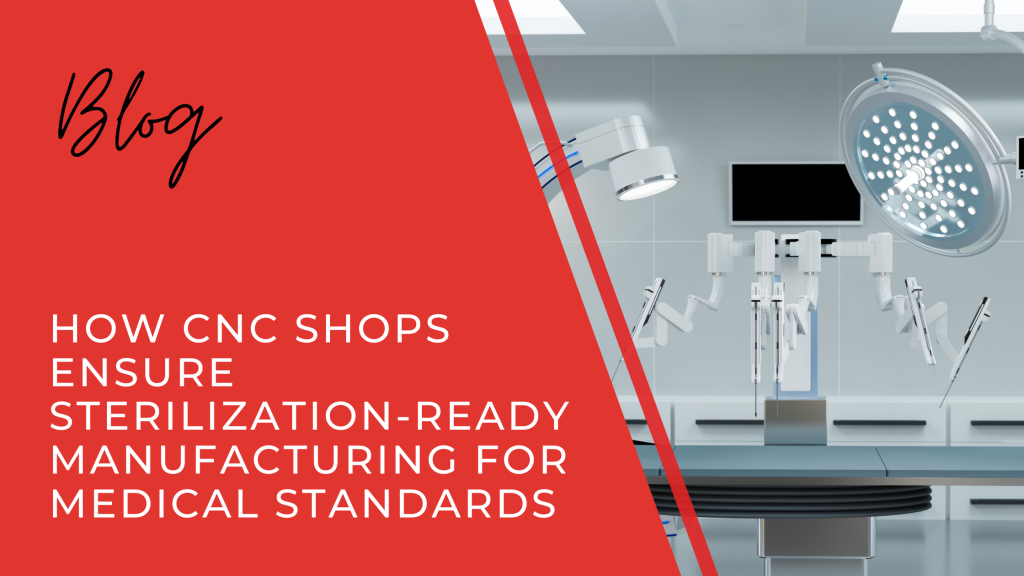
Precision is essential in CNC manufacturing, but when it comes to medical components, precision alone isn’t enough. Components must also meet stringent sterilization standards to ensure safety in healthcare settings. This critical aspect of production requires meticulous processes, specialized materials, and strict adherence to regulatory requirements.
The Role of CNC Machining in Medical Manufacturing
CNC machining is integral to creating components for medical devices, from surgical instruments to implants and diagnostic tools. These parts must not only meet exact specifications but also be capable of withstanding sterilization methods like autoclaving, chemical sterilants, or gamma radiation. Achieving this readiness involves more than just machining—it requires careful attention to every detail of the manufacturing process.
Selecting Sterilization-Compatible Materials
The choice of material is one of the first steps in ensuring sterilization-ready components. Medical-grade materials like stainless steel, titanium, and cobalt-chrome are commonly used due to their durability, corrosion resistance, and ability to endure repeated sterilization. These materials provide the foundation for safe and reliable medical devices.
The Importance of Surface Finishing
Smooth, clean surfaces are essential for components that need to be sterilized. Surface imperfections, such as burrs or abrasions, can harbor microorganisms and compromise sterilization. Advanced finishing techniques, such as passivation, electropolishing, and ultrasonic cleaning, help ensure components are free of contaminants and ready for use in sterile environments.
Meeting Regulatory Standards
Medical manufacturing requires adherence to strict industry certifications, including ISO 13485, which governs medical device quality management systems. Following these standards ensures not only the quality of the components but also the traceability and documentation necessary for regulatory compliance.
Ensuring Quality at Every Stage
Before medical components are shipped, they must pass rigorous quality assurance testing. This includes dimensional inspections and sometimes even specialized biocompatibility testing. Such thorough quality control measures guarantee that every component meets the necessary standards for sterilization and functionality.
Closing the Gap Between Manufacturing and Medical Excellence
Sterilization-ready manufacturing is a blend of precision engineering, material expertise, and strict quality control. It’s an ongoing process of innovation and improvement to meet the evolving needs of the medical industry.
If you’re looking for a CNC shop with the expertise to deliver medical-grade components that meet the highest sterilization standards, United Tool can help. Contact us today to discuss your next project and learn how we can support your manufacturing needs.
